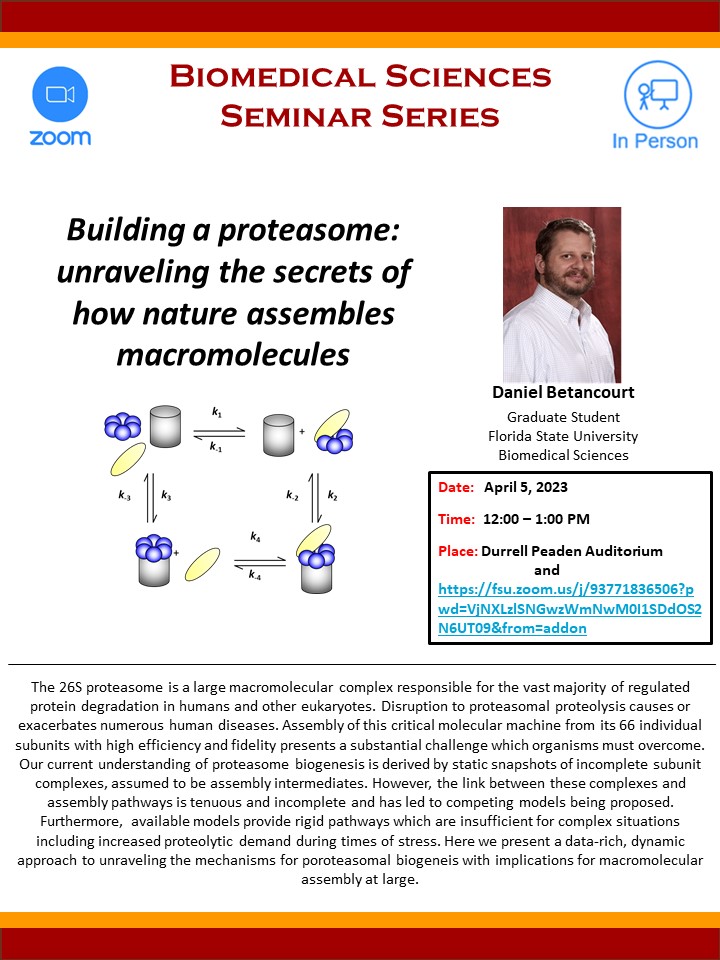Building a proteasome: unraveling the secrets of how nature assembles macromolecules

The 26S proteasome is a large macromolecular complex responsible for the vast majority of regulated protein degradation in humans and other eukaryotes. Disruption to proteasomal proteolysis causes or exacerbates numerous human diseases. Assembly of this critical molecular machine from its 66 individual subunits with high efficiency and fidelity presents a substantial challenge which organisms must overcome. Our current understanding of proteasome biogenesis is derived by static snapshots of incomplete subunit complexes, assumed to be assembly intermediates. However, the link between these complexes and assembly pathways is tenuous and incomplete and has led to competing models being proposed. Furthermore, available models provide rigid pathways which are insufficient for complex situations including increased proteolytic demand during times of stress. Here we present a data-rich, dynamic approach to unraveling the mechanisms for poroteasomal biogeneis with implications for macromolecular assembly at large.
COM 11400

